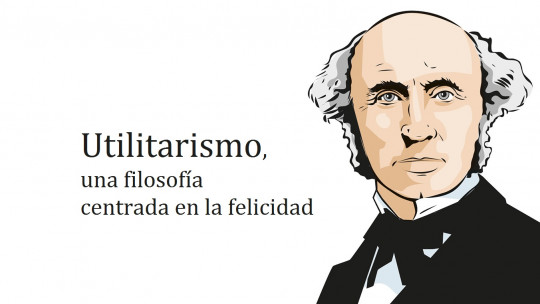
Happiness is one of those concepts that are as important and used as they are difficult to define. This is where a good part of its importance lies: most people assume that the topic of how we can become happy is something important, but at the same time, it is very difficult to reach clear and specific conclusions when talking about it.
In part, because happiness is, as an idea, something very abstract and changing; Probably, even the same individual will tend to define it in very different ways depending on the state of mind that he is experiencing at any given moment.
However, If there is a scientific discipline capable of helping us understand in the most objective way possible what happiness is, it is Psychology So, let’s see what this phenomenon consists of according to the research carried out by psychologists over the years.
The first philosophical investigations on happiness
There are several ways to understand what happiness is, and the first research carried out on it emerged from philosophy several centuries ago, especially from the Renaissance, when humanism emerged and the well-being of human beings was given importance as something with value in itself.
Since at this time there were practically no tools and technological solutions to try to study emotions and mental processes, the task of these thinkers focused, among other things, on distinguish between different definitions of happiness, so as not to go from one to another without realizing it and to maintain consistency when trying to study this phenomenon Thus, it was a primarily conceptual task, based on organizing ideas, rather than contrasting hypotheses with empirical data.
In this way two conceptions of happiness emerged: hedonism and the conception of life satisfaction The first, represented especially by utilitarian philosophers such as Jeremy Bentham, pointed out that happiness was above all a matter of giving priority to pleasure over displeasure, so that most of the time pleasurable experiences eclipse those that produce pain or displeasure.
In this logic, several thinkers in favor of this vision also pointed out that beyond trying to “refill the tank” of pleasurable experiences individually, what was desirable was for the greatest number of people possible to experience the greatest amount of pleasure possible.
In short, this way of being happy focuses on the need to manage and administer actions and experiences associated with pleasure, and avoid situations that produce displeasure
On the other hand, the conception of life satisfaction emphasizes the idea that human beings are happy or not based on a global assessment of their lives, a process that goes beyond the act of experiencing the present moment and the stimuli that come to us from the environment in which we are. In this way, those who are able to judge favorably their life path, as well as their future prospects, based on what they have learned about themselves and their way of interacting with the world, would be happy.
The meaning of the word happiness according to psychology
So far we have seen a series of key ideas arising from philosophy, but… what does psychology say about happiness? Ultimately, in the second half of the 19th century, a part of philosophy dedicated to studying behavior and mental processes became independent of its origins based on speculation and began to search for empirical evidence and tests in general, giving rise to the psychology, and with this transition, certain objects of study by philosophers began to be redefined in order to be addressed scientifically.
From the point of view of psychology, happiness is characterized as a mental state with a strong emotional charge, but which is also based on ideas and beliefs In this sense, happiness encompasses both emotions and cognitive elements (that is, thoughts structured in concepts intertwined, often through language). And from this point of view, both the short-term logic of hedonism and that of life satisfaction are taken into account, inspired by more abstract and long-term mental operations.
Although in psychology there is no very clear consensus about what it means to be happy, several very interesting findings have been made that bring us closer to a more nuanced and complete vision of happiness. They are the following.
1. People adapt their ability to be happy to crisis contexts
One of the characteristics of happiness is that When people go through experiences of great discomfort or a very great crisis that affects the quality of life, they adapt causing the minimum requirements to be happy to form a lower threshold. For example, people tend to assume that they could not be happy if they lost the ability to see with their eyes, but research reveals that those with acquired blindness are generally just as happy as the rest of the population.
2. The level of happiness adapts to social references
The way in which we are or are not happy depends largely on the type of people we have as references, and the living conditions that we attribute to them. For example, people with worse living conditions are less happy if in their daily lives they are exposed to many other people who live significantly better than them.
3. Material prosperity does not guarantee happiness
Although having the ability to have everything we need to live comfortably makes us more likely to be happy, does not guarantee happiness And furthermore, at a certain point, the lifestyle that in most cases is necessary to maintain a high level of wealth seems to offset the positive impact that these material goods provide in the form of hedonic pleasure.
4. Happiness depends on what we tell ourselves about our lives
In a way, the philosophers of the life satisfaction conception of happiness were right: It is difficult to be happy if we limit ourselves to filling our lives with pleasant moments without further ado This logic based on accumulation does not have to be accompanied by a feeling of progressing in life, or of achieving something significant for oneself or for society.
Are you looking for psychological assistance services?
If you are interested in having professional psychological support to deal with any type of emotional discomfort that affects you in your daily life or simply to work on your self-knowledge and have a greater capacity to be happy, contact us.
In Psychology For We have been treating patients for more than two decades, and we currently work helping adults, children and adolescents from the areas of psychotherapy, family and couples therapy, coaching, psychiatry and neuropsychology. Therapy sessions can be carried out in person at our center in Madrid or online.








